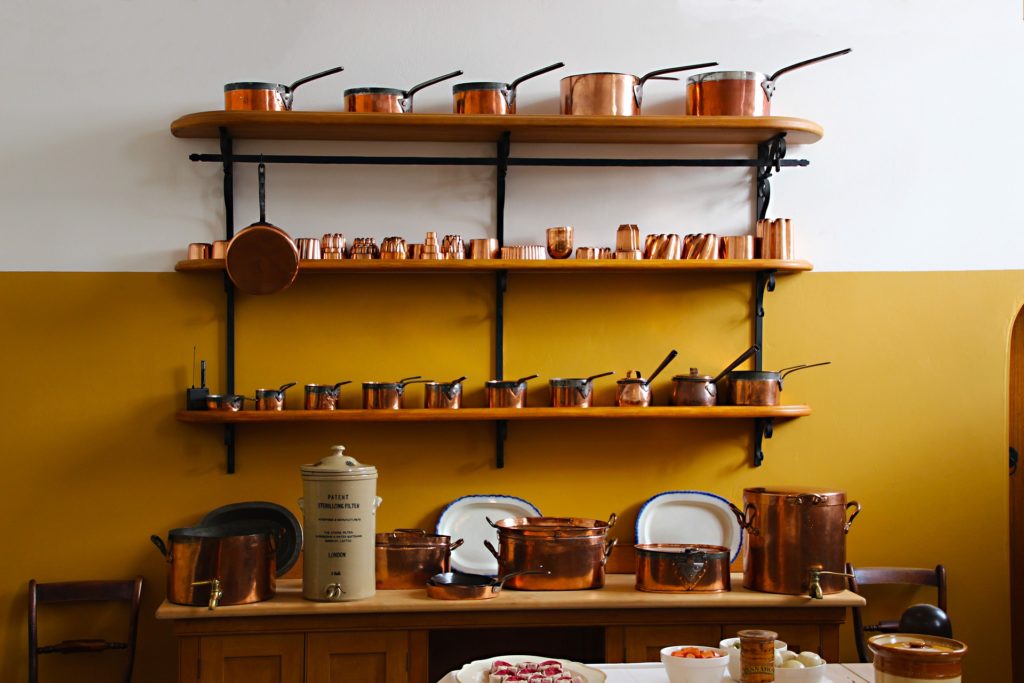Once there was a famous Guru in India. He had a disciple in Europe who was very keen to visit him for years and get a chance to live with him for a few weeks to go deeper in his practice.
Finally, the Guru agreed but warned that he lived very, very simply with the barest of necessities. The disciple was unfazed and excited about this opportunity to be in close proximity to his Guru in the coming days.
When he arrives at the home of the Guru, he is a bit taken aback at the level of austerity. It looks like an empty home. Nevertheless, he is welcomed warmly and he is happy to be finally in his Guru’s presence.
Once he has settled down a bit, he can’t hold himself any longer and says, “Guruji can I ask you something?”
“Yes of course.”
“I was just wondering, where is all your furniture?”
Guruji replies, “Where is yours?”
“But I am just a traveller.”
Guruji replies with a smile, “So am I.”

You and I, friends, we are just travellers here for a few decades on this planet. Our cars, our homes, our jewels, our cupboards bursting with the latest clothes, our bathroom shelves full of bottles and little boxes, our cosmetics, fake jewellery and toy car collections, and a million other sundry possessions. Where do we think we are taking it all?
Have you ever thought about the material resources and the energy needed to make each big and small item that we possess ?
Those plastic bottles will be hanging around for centuries. Those trendy synthetic clothes are shedding microplastics into rivers and oceans with every wash. And all those packets of chips, drinks, and biscuits are clogging some drain or getting into the stomach of a cow, when she finds food amidst a bunch of rubbish.
Such a huge toll on the planet for temporary and superficial pleasures of everyday urban living. But there are loads we can do to reduce the burden. And one of these is getting together to create a shared economy. By rekindling the spirit of sharing within communities, we can pool precious resources and share them for the benefit of all.
Here are six cool ideas to be more conscious, pool our resources, create conscious mini-communities and still enjoy the little pleasures with like-minded people.
1: Start A Sari Or Formal Clothing Bank With Your Friends

Get together with a group of people to create a catalogue of the saris, dresses, or other formal clothing they are happy to share with their friends, and share them online or by hand. Now, when you are invited to your friend’s wedding, no need to buy new clothes! Just borrow from the clothing bank and return in good shape.
2: Repurpose Your Existing Clothes

Just wearing more of what you already have is another great idea to reduce your clothing carbon footprint. Style your existing clothes with different accessories. Mix and match this salwar with that kurta or these pants with that jacket to create new combinations. Did you know there are a dozen ways to wear a scarf or drape a stole that completely changes your look? Be a creative, trendy, stylish, and minimalist.
3: Have You Heard About Crockery Banks?

I know of some good Samaritans in various parts of Gurgaon who have bought a whole lot of steel plates, spoons, and glasses and they lend them out for free. Just google “crockery bank near me” and you may be surprised to find one.
Next time you have a function, instead of using disposable or single-use plastic plates and cutlery, just borrow from the crockery bank and return the utensils cleaned. And if you can’t find one near you, perhaps you can start one of your own!
3: Pre-Loved Goods
Facebook has its uses other than keeping a tab on your friends. Check out a group called “Dariya Dil Dukaan”. Here you can post items you are no longer using or find items you might need and others are giving away. Why buy new when you can share?
4: Start A Conscious Mini-Community On WhatsApp
Find like-minded neighbours where you live and start a WhatsApp group to share items. Extra guests coming home? Need some chairs or trays? Having a function and need to borrow some potted plants? Your child is growing out of their clothes and you want to offer some outfits to younger kids? Here’s your chance!
5: Donate!

There are many organisations which take your old or discarded items (still in good condition, of course) and donate it tot he underprivileged. Goonj is one such NGO. They run a scheme in villages where they build schools for the locals, who, in turn, contribute their labour. In exchange they provide clothes or utensils you may no longer need. Or they may support a family and their children’s wedding by donating that suit you no longer fit into or need. Check out goonj.org for all the cool things they do!
You can save thousands of kilos of carbon from going into the air by taking no-shopping challenges for extended periods. For example, if you buy a simple combination of jeans with a cotton T-shirt, a jacket, sneakers (and underwear) – you have contributed 76 kg of CO2 equivalent emissions. This is the same carbon emission you would emit if you drive a car for 470 km!
So the next time, the thought comes to you to buy something new ask yourself these 3 questions and become a conscious consumer!
- Can I repurpose something I already have?
- Can I borrow it from someone and return it?
- Can I do without it completely? Do I even need it?
(This article was first published in Youth Ki Awaaz.)
Nandini Gulati is a holistic health coach, public speaker and climate activist. (http://nandinigulati.com/)
She believes that our diets, lifestyles and consumption patterns dictate our health and the state of the planet.
She is a published co-author of Guilt-free Vegan Cookbook, a delightful repository of healthy and tasty multi-cuisine recipes from around the world.





